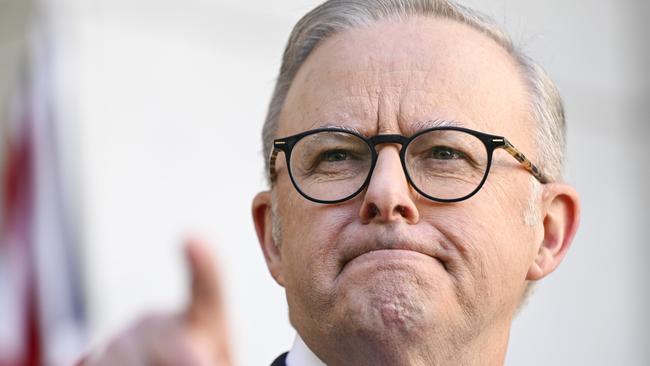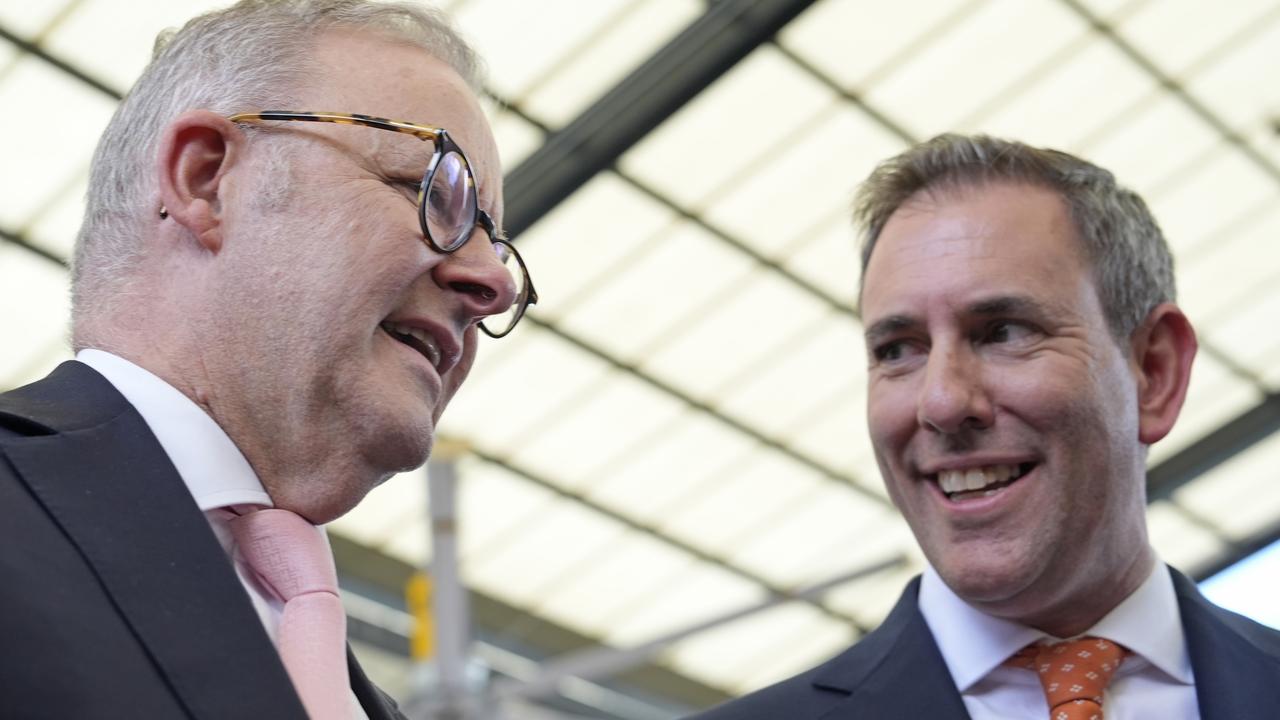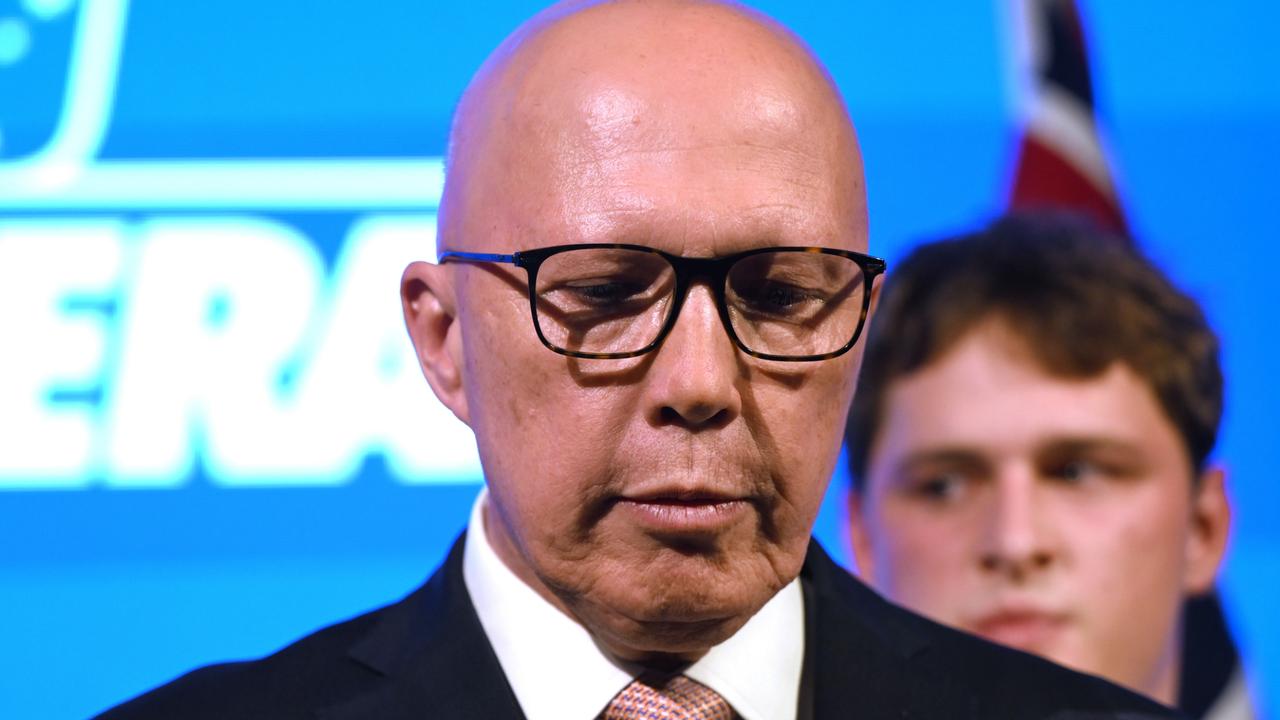Editorial: Labor must wean Australia off handout mentality
Anthony Albanese and Jim Chalmers’ biggest challenge over the next three years will be difficult politically, but is hugely important economically, writes the editor.

Analysis
Don't miss out on the headlines from Analysis. Followed categories will be added to My News.
The biggest challenge facing Prime Minister Anthony Albanese and his Treasurer Jim Chalmers over the next few years will be to wean the population off its post-Covid-19 dependency on handouts.
This will be difficult for them politically. But it is hugely important economically.
What we saw on the weekend in this most extraordinary of Labor victories was the voting population answering the key question posed by the opposition of “do you feel worse off than you did three years ago?” with the answer “which of you two is going to hand me more cash?” Their determination was – clearly – Mr Albanese’s Labor.
It is an understandable position. If you are struggling to pay the rent or buy groceries then why would you give a hoot about the position of the federal budget, credit rating downgrades, or the size of the nation’s debt? Your priority is, of course, always going to be your own financial circumstances.
But this largesse simply has to end. Since the federal government necessarily pretty well underwrote the entire national economy during the Covid lockdowns five years ago, Australians have viewed welfare to be a right for all, rather than as a safety net for those few who need it.
The politicians have followed, building the election campaigns since around a laundry list of which side is going to give which group more money. And it is working, hence the significant challenge facing the government.
An example, as we reported yesterday, is the impact at the ballot box of the Albanese promise of a taxpayer-funded 20 per cent cut to every higher education loan. The average graduate will benefit to the tune of $5500, for nothing – and it will not be means tested.
The result was that Labor won a swag of electorates with the highest proportion of voters who have HECS debts – including the two in inner-city Brisbane seats the party won from the Greens.
It was a stunning success when you look at it electorally. It not only underpinned Labor’s remarkable increased majority, but it attracted back to Labor many under-45s (the biggest cohort of voters at this election) who had been most likely to flirt with the Greens.
The promise will not increase productivity, nor deliver any long-term benefit to the nation. It was literally just a handout that will cost the budget upwards of $16bn – the equivalent of five Olympic stadiums. But who cares anymore? Treasurer Chalmers just whacked it on the government credit card, which is already maxed out, putting at risk our nation’s credit rating, meaning it will cost future governments at state and federal level more to borrow for the stuff we actually need delivered.
A decade ago this type of policy would have come under far more scrutiny for what it really is – the demographic equivalent of a classic marginal seat pork-barrel.
Former Liberal treasurer Peter Costello’s Baby Bonus a generation ago is a good example of a non-means-tested handout that was based on economics rather than just politics. His gift was driven by the real need to turn around the nation’s slumping birthrate. He saw that to fund the pensions of baby boomers, we were going to need a bigger workforce. It worked. The first Baby Bonus kids are now 21. The last of the baby boomers are about to start their retirement.
Mr Albanese and Mr Chalmers know all of this. They know the handout mentality is unsustainable.
The challenge is they are also politicians. But as long as our elections remain contests not of ideas but of who offers most money, we will be stuck in this cycle. Both sides should consider a truce.
TARIFFS HIT FILM INDUSTRY
We are lucky in Australia that our elected politicians at least pretend to govern for all. In US President Donald Trump’s America, you’re either with him or you’re against.
So it is with Mr Trump’s latest battle – his war on famously Democratic Hollywood, via a new threatened 100 per cent tariff on all movies made outside of the US.
As with his other tariff policies, he has tried to paint this as a way to generate more local jobs. But the brutal reality is that the entire film industry relies on the offshoring of movie-making, because otherwise the budgets just would not stack up where streaming does not offer the same returns as DVD sales used to do once the films have finished their cinema runs.
After meeting with his Hollywood advisers Sylvester Stallone, Jon Voight and Mel Gibson (who is Australian, last time we checked), Mr Trump announced the tariff and went further, saying the incentives that countries such as Australia offered to secure US productions amounted to a national security risk.
Our multibillion-dollar film industry was on Monday trying to get more information about the plan, but there’s no doubt this has the potential to cause enormous damage to Queensland, with US productions currently filming and lined up into the future.
Responsibility for election comment is taken by Chris Jones, corner of Mayne Rd & Campbell St, Bowen Hills, Qld 4006. Printed and published by NEWSQUEENSLAND (ACN 009 661 778). Contact details here
Originally published as Editorial: Labor must wean Australia off handout mentality


